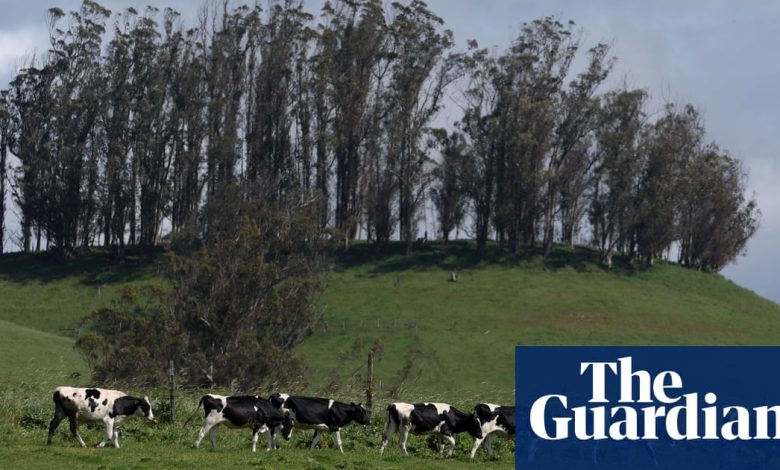US agriculture officials mandate testing of milk supply for bird flu | Bird flu

America’s national milk supply should be tested for bird flu virus under a new federal order from the U.S. Department of Agriculture announced Friday.
The mandate comes at a time when authorities are trying to deal with rapid spread of bird flu, known as H5N1, among dairy herds. Infections have spread to more than 500 dairy herds in Californiabest dairy producing state.
More than 700 dairy herds have been reported infected nationwide since March, according to the USDA.
Since April, nearly 60 people have contracted the virus. According to the US Centers for Disease Control and Prevention, most of these cases were workers on infected dairy farms. So far, symptoms have been mild, and CDC officials say the current risk to the general public from bird flu is low.
Although the potentially deadly virus is not known to spread easily among humans, any infection left untreated gives the virus an opportunity to become more contagious, the researchers warned.
In particular, scientists from the Scripps Research Institute reported that it would take just a single mutation in the current bird flu virus to produce a version more easily able to attach to human cells.
The USDA’s new strategy to combat the virus involves testing bulk samples of raw milk from dairies across the country.
“Among the many outcomes, this will give farmers and farm workers greater confidence in the safety of their animals and the ability to protect themselves, and will put us on a path to quickly control and stop the spread of the virus across the country,” the Agriculture Minister Tom Vilsack said Friday in a press release.
Farmers, milk processors and other entities working with raw milk will be required to provide samples of unpasteurized milk when requested by the government. Owners of dairy farms with infected herds will also be empowered to provide details that could help officials identify more potential cases and those who have come into contact with the virus.
The new testing rules came after many experts, including some from around the world health The organization criticized the apparent lack of testing on both cattle and humans. Previously, government guidance on how to deal with the outbreak was voluntary.


